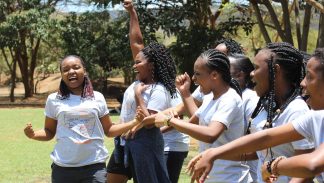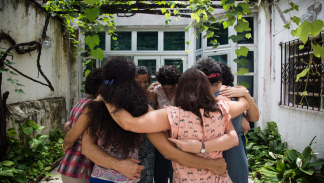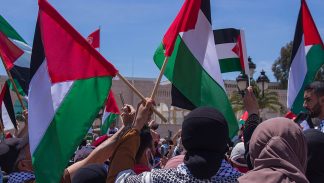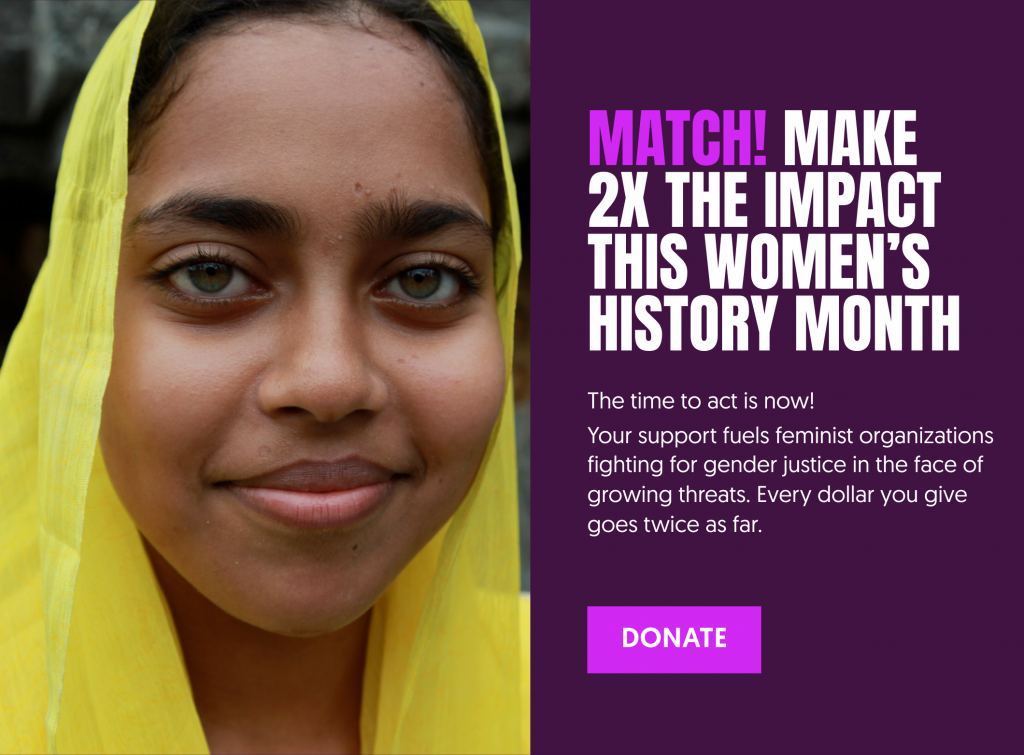Khadra Al Sanah
In the south of Israel lies the Negev desert. Officially, part of the land is “unoccupied.” But in reality, half of the Negev’s 160,000 inhabitations of Palestinian Bedouin indigenous communities live in informal, unrecognized villages.
Khadra Al Sanah has lived in the Negev all her life. Until recently, there was no electricity or running water in her village, and there was only one school for the thousands of inhabitants—an elementary school. The Israeli government claims these villages were built without permits. In reality, these lands were already owned by Bedouins prior to Israel’s establishment in 1948. As such, discriminatory land and planning policies against the Negev have made it nearly impossible for the Bedouin people to build legally. The state has forcibly evicted people, demolished their homes, and offers no infrastructure or support for these people.
Additionally, Bedouin society is rooted in conservative, patriarchal traditions. Women have limited rights, and many are illiterate, never having had the opportunity to go to school. In earlier Bedouin society, Khadra says that women played an important role in managing the household and earning money, and were well-respected. As Bedouin culture came under threat, those traditions were lost, and women were disempowered.
Khadra herself came from a family of 11 children; while most of her siblings stopped their education in middle school, she chose to continue school. She also delayed marriage until the relatively late age of 22, and only agreed to marry her husband with the condition that she could continue her studies. When she gave birth to her eldest daughter, she says she asked herself “Is this the life I want for her?”
Khadra and other women felt that the Bedouin community needed to go back to its roots of respecting women. So in 1997, Khadra and other Bedouin women established Sidreh in order to improve the quality of life of Bedouin women in the Negev. (Sidreh is the name of the tree that grows in the desert, and was chosen as a name for the group to reflect the strength of Bedouin women and the possibility of growth, even in a hostile environment.) Khadra and her sisters at Sidreh want to empower women economically, socially, and personally. They offer job training, education programs, rights-awareness training, domestic violence prevention projects, and more.
Khadra faces the twin oppositions of the conservative Negev culture and the discriminatory Israeli government in her effort to win greater rights for Bedouin women. “We started very slowly because we felt that we as an association are not able to solve all the problems of women in the Negev,” says Khadra. “We were young women who wanted to think outside the scope of the house and the clan. The community called it a crazy idea and wanted to know, are we holding a rebellion, or are we going to do something so radical that society as a whole is not going to accept? But there was an urgent need. The economic situation was especially very difficult.”
Khadra and the other women at Sidreh began by trying to get support for education for women in the Negev. They submitted research plans and reports to the Israeli parliament and other leading bodies like the United Nations, making sure to include the voices of women from Bedouin villages. “Bit by bit, we tried to paint a picture of the Negev—not only through the suffering of women but representing all the needs of the society.”
While they have had success, Khadra’s work is risky. The Israeli government continues forced evictions in the Negev, destabilizing the communities where she works. And while Khadra and Sidreh have made progress in changing women’s status, not all Bedouin men are on board. “We are living in a very sensitive society. You want to be very smart, especially while dealing with traditional men that have difficulty accepting women outside the home,” says Khadra. “No one can distract us from our work, but sometimes opposition wrecks our work. Other associations advocating for women have shut down because they were afraid and threatened by men. Men think women are trying to rebel, that we at Sidreh are trying to brainwash women. So this means we have to do our research at the beginning and have backing from other men in the village so they will support our projects.”
“Because I am a part of the women in the Negev, their concerns are my concerns. Also, I have a family, and so I think of the coming generations and want them to have it easier…. that they will have other things to demand.” Khadra says that success for her will be when women are able to “live in dignity, and that they cannot be separated from the society that they live in; that everyone has an important role in life; that they are able to benefit others and be benefited in this world.”
#DearDefendHer
Show Khadra and women human rights defenders around the world that you stand with them! Sign our #DearDefendHer solidarity statement today.
No one can distract us from our work, but sometimes opposition wrecks our work.”Khadra Al Sanah



